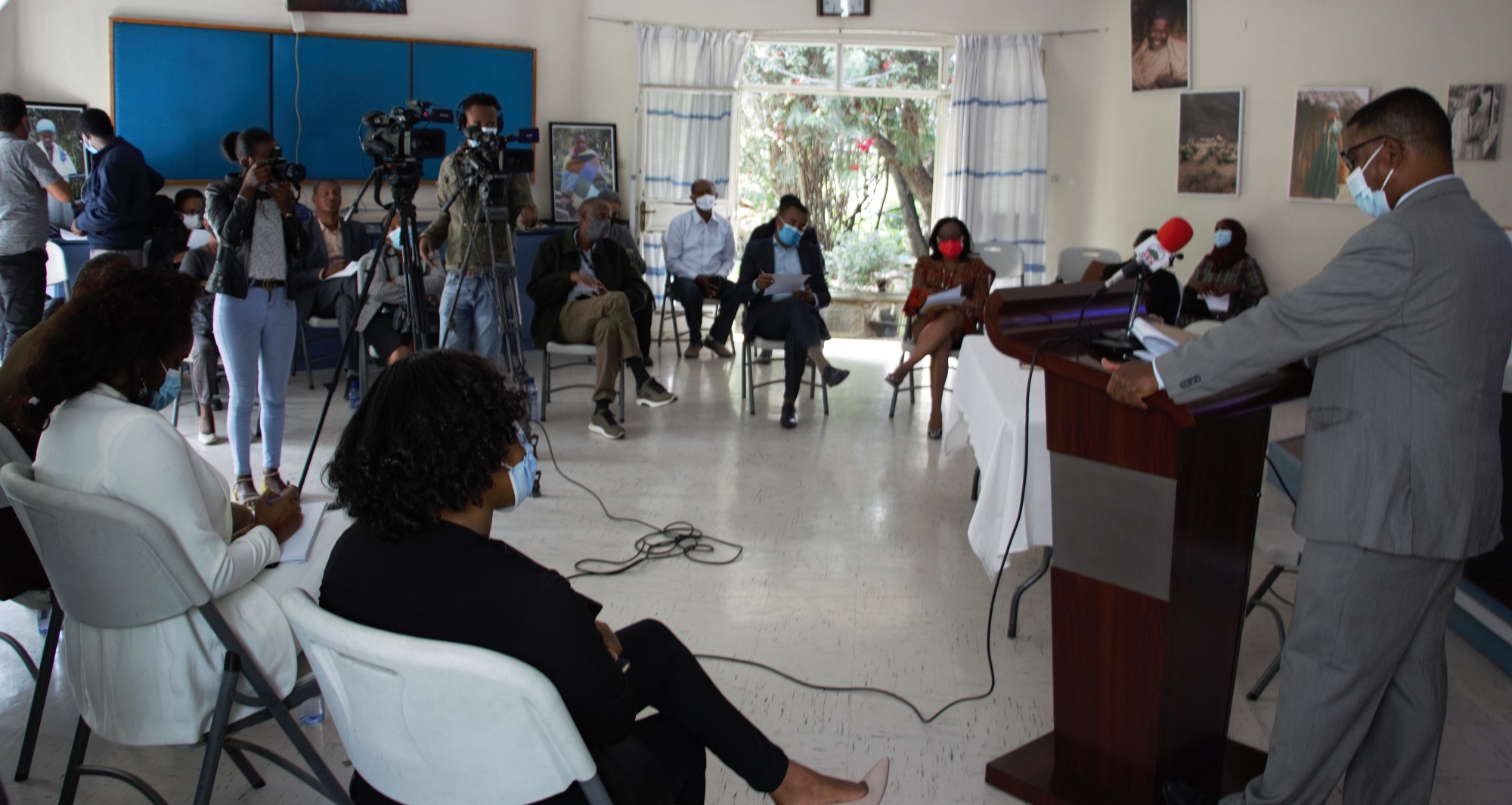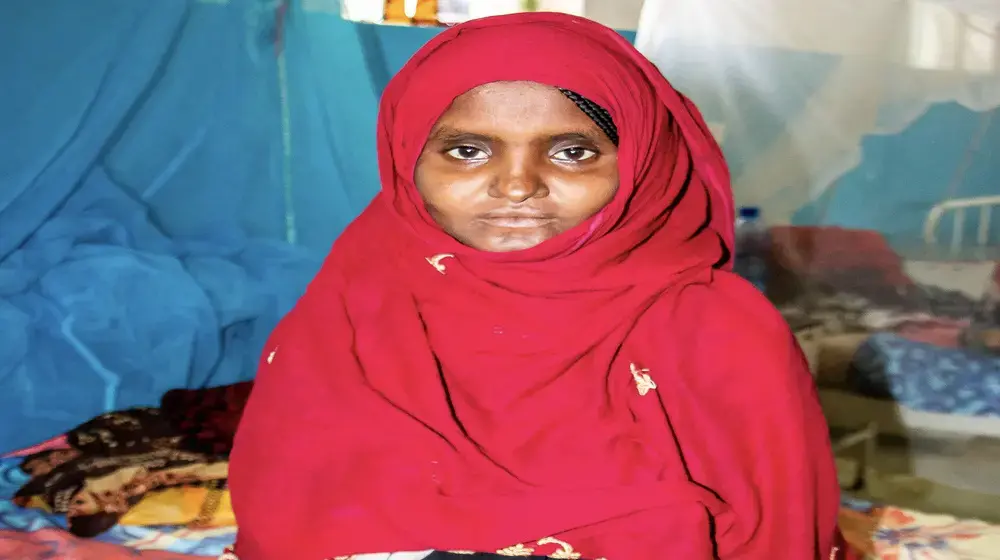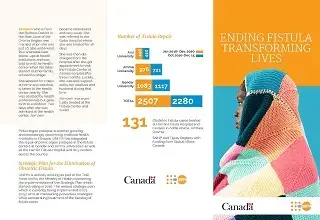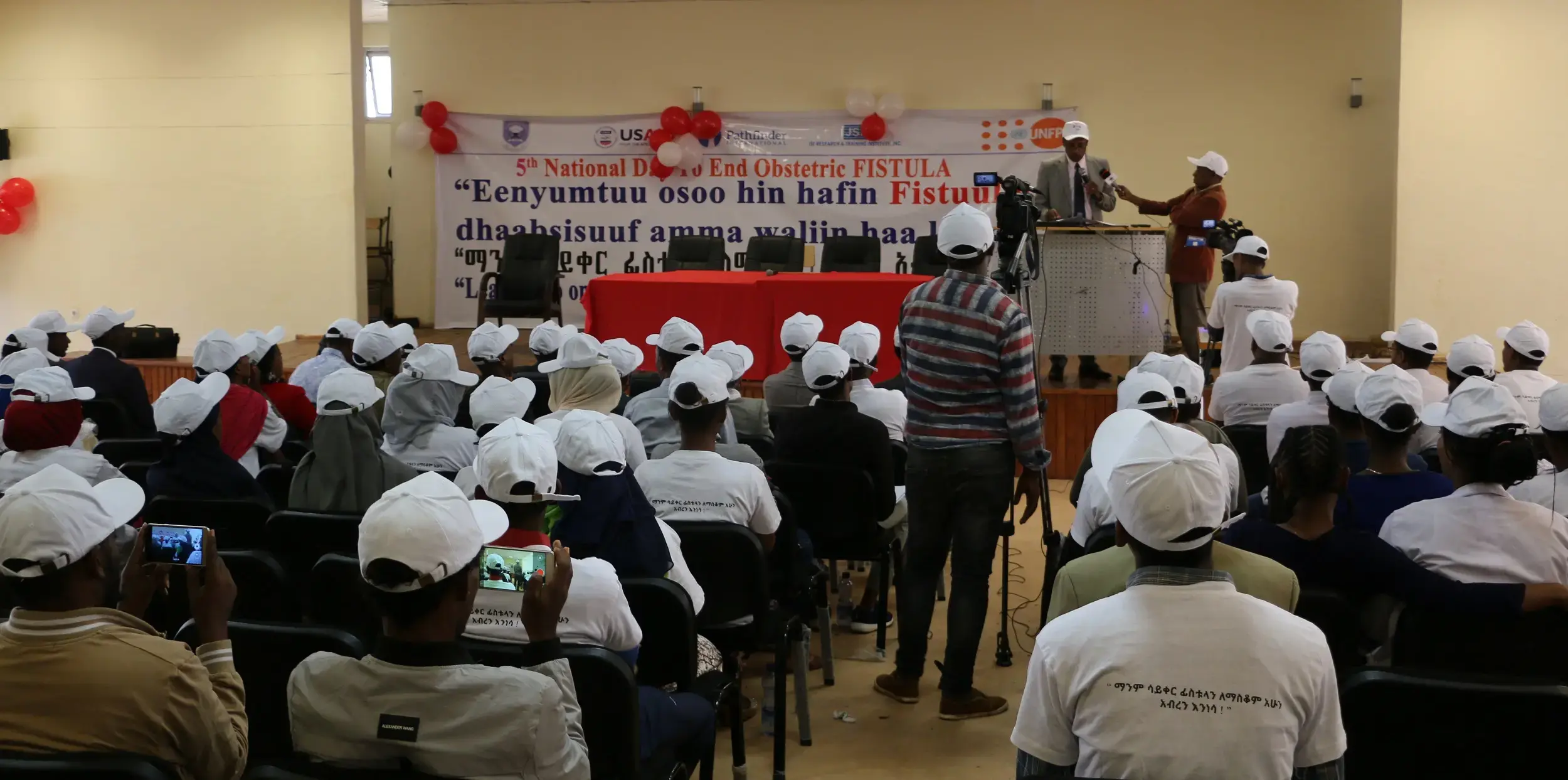A High Level Event organized in collaboration with the Ministry of Health, UNFPA and Hamlin Fistula Ethiopia was held today to mark the International Day to End Obstetric Fistula. The event was held under the theme “Women’s rights are human rights! End Fistula Now.”
Since its designation by the United Nations General Assembly, the day has been used to reflect on the progresses made, to raise awareness, and to generate political and financial support for the global campaign to end obstetric fistula. Every day around the world, more than 800 women die from pregnancy-related complications. For every woman who dies, 20 or more are injured or disabled. One of the most serious childbearing injuries is obstetric fistula - a tear in the birth canal caused by prolonged, obstructed labour in the absence of timely and adequate medical care.
An estimated 36,000 to 39,000 women currently live with this terrible morbidity in Ethiopia and between 3,300 and 3,750 new obstetric fistula cases occur in the country every year.
Lack of skilled attendant at birth and access to emergency obstetric care are the main challenges to the reduction of obstetric fistula in Ethiopia. Harmful practices such as child marriage and FGM are contributing factors as does poor nutrition which can result in short stature and a pelvis that is too narrow to allow a baby’s head to safely pass through.
Women with obstetric fistula suffer multiple health, psychological and socio-economic consequence such as divorce, depression and social isolation.

Promoting universal access to timely, high-quality maternity care, including skilled birth attendance, midwifery care and emergency obstetric care is critical in preventing obstetric fistula. Moreover, eliminating gender-based social and economic inequalities; preventing child marriage and early childbearing; promoting education and broader human rights; and fostering community participation in finding solutions, including the active involvement of men, as well as seeking the help of fistula survivors as advocates are also critical.
While the immediate causes of Obstetric fistula are obstructed labour and a lack of emergency obstetric care, pervasive poverty is an important underlying cause. Women who suffer from Obstetric fistula tend to be impoverished, malnourished, lack basic education and live in remote, rural areas. Some studies showed that over 99% of women undergoing surgical repair were illiterate.
A five-year strategic plan spearheaded by the Ministry of Health and engaging different stakeholders is currently being implemented in Ethiopia to eliminate obstetric fistula. The strategic plan aims at maintaining prevention strategies while accelerating treatment of the backlog of fistula cases in the country. The factors that lead women to develop obstetric fistula are the same as those which cause maternal morbidity and mortality as well as many newborn deaths. Preventive strategies to reduce one will have a significant impact on the other. Any strategy for obstetric fistula prevention and treatment should, therefore, be an integral part of the national maternal and neonatal health strategy, or the maternal and neonatal mortality reduction plan.
The multi-sectoral efforts at eliminating obstetric fistula in Ethiopia were discussed at length at the high level event organized to observe the International Day to End Obstetric Fistula.





